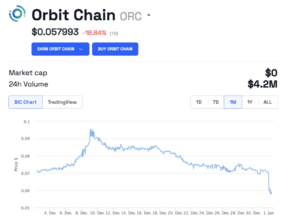
- As the crypto industry grows and matures, creating a legal framework that can balance innovation with consumer protection and financial stability is necessary.
- The challenges regulators face include determining how to classify cryptocurrencies under existing legal frameworks, ensuring Anti-Money Laundering AML and Know-Your-Customer KYC compliance, and addressing concerns over investor protection and market stability.
- It is important for stakeholders, including regulators, industry participants, and investors, to work together to shape the regulatory landscape.
Cryptocurrencies and blockchain technology have emerged as a major disruptor in the global financial system. The decentralized and distributed nature of these technologies has the potential to revolutionize traditional financial systems, but they also pose unique challenges in terms of regulation. As the crypto industry grows and matures, creating a legal framework that can balance innovation with consumer protection and financial stability is necessary.
Crypto Regulation: The Current State of Affairs
The regulatory landscape for cryptocurrencies and blockchain technology varies widely around the world. Some countries have taken a proactive approach to regulating the crypto industry, while others have banned cryptocurrencies altogether. The challenges regulators face include determining how to classify cryptocurrencies under existing legal frameworks, ensuring Anti-Money Laundering AML and Know-Your-Customer KYC compliance, and addressing concerns over investor protection and market stability.
In the United States, the regulatory environment for cryptocurrencies has been in a state of flux. The Securities and Exchange Commission (SEC) has been grappling with classifying cryptocurrencies and tokens under securities laws, while the Commodity Futures Trading Commission (CFTC) has taken a more permissive approach. Similarly, the Internal Revenue Service (IRS) has struggled to determine how to tax cryptocurrencies, leading to confusion and uncertainty for investors.
In Europe, countries such as Malta and Estonia have been at the forefront of embracing cryptocurrencies and blockchain technology. Malta has established itself as a hub for crypto exchanges and has passed several pieces of legislation to provide clarity and regulatory certainty for the industry. Estonia has also been proactive in promoting the adoption of blockchain technology and has launched several initiatives to encourage innovation in the sector.
China has taken a hardline approach to cryptocurrencies in Asia, banning ICOs and cryptocurrency exchanges. On the other hand, Japan has embraced cryptocurrencies and passed a law regulating cryptocurrency exchanges. South Korea has also taken steps to regulate cryptocurrencies, although it has been more cautious in its approach.
In Africa, the reception has been mixed. North African countries moved to ban cryptocurrency after Morrocco kicked off the trend. The majority of African countries placed a ban on cryptocurrency trading. Most are implicit bans, while some countries have gone to the extreme and outright banned it. However, it’s not all bad news. The Central African Republic became the first to accept Bitcoin as legal tender. Južna Afrika je regulirala kriptovalute v skladu s svojim zakonom o finančnih sredstvih. This also covers crypto asset service providers such as exchanges and wallets. Namibia lifted its crypto ban allowing willing parties to settle transactions in cryptocurrency. Kenya moved to bring cryptocurrency into the fold by taxing cryptocurrency gains. Nigeria launched Africa’s first Central Bank Digital Currency (CBDC).
Izzivi v kripto regulaciji
Regulacija kriptovalut je lahko zahtevna iz več razlogov:
decentralizacija
Kriptovalute delujejo v decentraliziranih omrežjih, kot je tehnologija blockchain. To pomeni, da ni osrednjega organa ali upravnega organa, ki bi nadzoroval ali nadziral transakcije s kriptovalutami. Ta decentralizirana narava otežuje učinkovito uporabo tradicionalnih regulativnih okvirov.
Pomanjkanje pristojnosti
Kriptovalute niso omejene z geografskimi mejami, zaradi česar je za katero koli posamezno vlado ali regulativni organ izziv univerzalno uveljavljanje predpisov. Transakcije s kriptovalutami se lahko izvajajo v več državah in pogosto ni jasno, katera jurisdikcija bi morala prevzeti odgovornost za ureditev.
Anonimnost in psevdonimnost
Kriptovalute uporabnikom zagotavljajo določeno stopnjo zasebnosti in anonimnosti. Čeprav se ta funkcija pogosto obravnava kot koristna, predstavlja tudi izziv za regulatorje, saj lahko olajša nezakonite dejavnosti, kot so pranje denarja, davčne utaje in financiranje nezakonitih dejavnosti. Uravnoteženje zasebnosti s potrebo po regulaciji je zapletena naloga.
Hitro razvijajoča se tehnologija
Kripto industrija se nenehno razvija, z novimi kriptovalutami, žetoni in tehnologijami, ki se redno pojavljajo. Regulatorji se pogosto trudijo držati korak s tem razvojem in razumeti zapletenost vsake kriptovalute, njeno osnovno tehnologijo in njene morebitne posledice za finančne trge in varstvo potrošnikov.
Globalno usklajevanje
Ker kriptovalute niso omejene na eno jurisdikcijo, učinkovita ureditev zahteva mednarodno sodelovanje in usklajevanje med državami. Doseganje soglasja o regulativnih standardih in mehanizmih uveljavljanja je lahko izziv zaradi različnih regulativnih pristopov in prednostnih nalog v različnih državah.
Ravnovesje med inovacijami in zaščito vlagateljev
Regulatorji morajo uravnotežiti spodbujanje inovacij v kriptovalutah in zaščito vlagateljev pred morebitnimi tveganji. Preveč strogi predpisi lahko zavirajo inovacije, medtem ko ohlapni predpisi vlagatelje izpostavijo prevaram, tržnim manipulacijam in finančnim izgubam.
Opportunities in Crypto Regulation
Despite the challenges, several opportunities exist in regulating cryptocurrencies and blockchain technology. Regulations can provide market participants clarity and certainty, leading to increased adoption and investment. Moreover, regulations can provide a framework for innovation in the industry, which can drive economic growth and job creation.
Regulations can also protect investors and consumers from fraudulent activities in the industry. The lack of transparency and oversight in some areas of the crypto industry has led to fraud and scams. Regulations can protect investors and consumers, increasing industry trust and promoting long-term sustainability.
Furthermore, regulations can enhance transparency and accountability in the industry. Regulations can increase trust and confidence in the industry by requiring greater transparency in transactions and providing oversight for exchanges and other market participants. This can lead to greater adoption and investment and increased legitimacy for cryptocurrencies and blockchain technology.
There is also something to say about the prospects of regulating cryptocurrency for African governments. It has become a popular campaigning point for presidential candidates to mention taxing crypto as part of the digital economy. Regulating crypto also creates the opportunity to tax it appropriately. The potential benefits of such a move are astronomical. Revenue realised from taxing cryptocurrency and other digital activity could be well used to develop infrastructure further.
Crypto regulation the way forward
Skratka, ustvarjanje pravnega okvira za kriptovalute in tehnologijo veriženja blokov predstavlja izzive in priložnosti. Čeprav edinstvena narava teh tehnologij predstavlja regulativne izzive, obstajajo tudi priložnosti za inovacije, rast in varstvo potrošnikov. Razvoj regulativnega okvira, ki uravnoteži te konkurenčne interese, bo ključnega pomena za dolgoročno vzdržnost in uspeh industrije.
Za zainteresirane strani, vključno z regulatorji, udeleženci v panogi in vlagatelji, je pomembno, da sodelujejo pri oblikovanju regulativnega okolja. Sodelovanje lahko pomaga zagotoviti, da so predpisi učinkoviti, učinkoviti in primerni za edinstvene značilnosti industrije.
Prihodnost kriptoregulacije bo verjetno pomembno vplivala na svetovno gospodarstvo. Ker se kriptovalute in tehnologija veriženja blokov še naprej krepijo, se bodo regulatorji soočali z vse večjim pritiskom, da zagotovijo jasnost in smernice za udeležence na trgu. S proaktivnim pristopom in sodelovanjem lahko regulatorji pomagajo zagotoviti, da industrija še naprej raste in uvaja inovacije, hkrati pa zagotavlja varstvo potrošnikov in finančno stabilnost.
- Distribucija vsebine in PR s pomočjo SEO. Okrepite se še danes.
- PlatoAiStream. Podatkovna inteligenca Web3. Razširjeno znanje. Dostopite tukaj.
- Kovanje prihodnosti z Adryenn Ashley. Dostopite tukaj.
- Kupujte in prodajajte delnice podjetij pred IPO s PREIPO®. Dostopite tukaj.
- vir: https://web3africa.news/2023/05/20/news/the-increasing-need-for-crypto-regulation/
- :ima
- : je
- :ne
- a
- O meni
- Sprejmi
- odgovornost
- doseganju
- čez
- dejavnosti
- dejavnost
- naslavljanje
- Sprejetje
- Afrika
- Afriški
- po
- vsi
- Dovoli
- Prav tako
- Čeprav
- skupaj
- AML
- med
- in
- anonimnost
- preprečevanje pranja denarja
- kaj
- Uporabi
- pristop
- pristopi
- primerno
- ustrezno
- SE
- območja
- okoli
- AS
- asia
- sredstvo
- Sredstva
- At
- organ
- Slab
- Ravnovesje
- tehtnice
- Ban
- Banka
- prepovedana
- Prepovedi
- BE
- postal
- postanejo
- bilo
- koristno
- Prednosti
- Bitcoin
- blockchain
- Blokchain tehnologija
- telo
- Bound
- Meje
- prinašajo
- vendar
- by
- kampanje
- CAN
- kandidati
- previden
- CBDCA
- Osrednji
- Srednjeafriška republika
- centralna oblast
- Centralna banka
- digitalna valuta centralne banke
- digitalna valuta centralne banke (CBDC)
- nekatere
- varnost
- CFTC
- izzivi
- izziv
- lastnosti
- jasnost
- Razvrsti
- sodelovanje
- Komisija
- blago
- tekmuje
- kompleksna
- skladnost
- Skrbi
- Sklenitev
- zaupanje
- zmeda
- Soglasje
- nenehno
- Potrošnik
- Varstvo potrošnikov
- Potrošniki
- naprej
- se nadaljuje
- Nadzor
- sodelovanje
- usklajevanje
- bi
- države
- Ovitki
- ustvari
- Ustvarjanje
- Oblikovanje
- ključnega pomena
- kripto
- kripto sredstvo
- kripto prepoved
- Kriptovalute
- Kripto industrija
- Kripto regulacija
- cryptocurrencies
- cryptocurrency
- Izmenjave kripto valut
- trgovanje kriptokovno
- valuta
- Trenutna
- Trenutno stanje
- Decentralizirano
- decentraliziranih omrežij
- Ugotovite,
- določanje
- Razvoj
- razvoju
- razvoju
- drugačen
- težko
- digitalni
- digitalna valuta
- Digitalno gospodarstvo
- porazdeljena
- pogon
- 2
- vsak
- Gospodarska
- Gospodarska rast
- Gospodarstvo
- Učinkovito
- učinkovito
- učinkovite
- objel
- objame
- pojavile
- smirkovim
- spodbujanje
- uveljaviti
- izvršba
- okrepi
- zagotovitev
- zagotoviti
- okolje
- ustanovljena
- Estoniji
- Evropa
- razvija
- razvija
- Izmenjava
- Izmenjave
- obstajajo
- obstoječih
- ekstremna
- Obraz
- olajšati
- Feature
- finančna
- finančna stabilnost
- finančni sistem
- finančni sistemi
- financiranja
- prva
- FLUX
- za
- Za vlagatelje
- ospredju
- gojenje
- Okvirni
- okviri
- goljufija
- goljufiva
- iz
- nadalje
- Prihodnost
- Terminske pogodbe
- Trgovanje s terminskimi pogodbami
- Gain
- zaslužek
- geografsko
- Globalno
- Globalno gospodarstvo
- svetovni finančni
- globalni finančni sistem
- upravljanje
- vlada
- Vlade
- več
- Grow
- raste
- Rast
- Navodila
- strani
- Imajo
- pomoč
- Kako
- Kako
- Vendar
- HTTPS
- Hub
- ICO
- nezakonito
- nedovoljen
- vpliv
- posledice
- Pomembno
- in
- vključujejo
- Vključno
- Povečajte
- povečal
- narašča
- Industrija
- industriji
- Infrastruktura
- pobud
- inovacije
- Inovacije
- interesi
- notranji
- Notranja davčna služba
- Facebook Global
- v
- zapletenosti
- naložbe
- Investopedia
- Investitor
- zaščita vlagateljev
- Vlagatelji
- IRS
- IT
- ITS
- sam
- Japonska
- Job
- jpg
- pristojnost
- Imejte
- Kenija
- korea
- KYC
- Skladnost s KYC
- Pomanjkanje
- Pokrajina
- začela
- Pranje
- zakon
- Zakoni
- vodi
- vodi
- Led
- Pravne informacije
- pravni okvir
- ZAKONSKA PONUDBA
- Zakonodaja
- legitimnost
- Stopnja
- Dvignil
- Verjeten
- dolgoročna
- izgube
- velika
- Večina
- IZDELA
- Izdelava
- Malta
- Manipulacija
- Tržna
- tržna manipulacija
- Prisotnost
- zori
- pomeni
- Mehanizmi
- mešano
- Denar
- Pranje denarja
- več
- Poleg tega
- Najbolj
- premikanje
- več
- morajo
- narodov
- Narava
- potrebno
- Nimate
- omrežij
- Novo
- novice
- Nigerija
- št
- sever
- of
- off
- pogosto
- on
- deluje
- Priložnosti
- Priložnost
- or
- Ostalo
- drugi
- več
- Nadzor
- Pace
- del
- Udeleženci
- Stranke
- opravil
- kosov
- platon
- Platonova podatkovna inteligenca
- PlatoData
- Točka
- Popular
- pozira
- potencial
- darila
- predsedniški
- tlak
- zasebnost
- Proaktivna
- Spodbujanje
- možnosti
- zaščito
- zaščititi vlagatelje
- zaščito
- zaščita
- zagotavljajo
- ponudniki
- zagotavljanje
- Razlogi
- sprejem
- redno
- Uredi
- urejeno
- Uredba
- predpisi
- Regulatorji
- regulatorni
- regulativno pokrajino
- Republika
- zahteva
- Odgovornost
- prihodki
- revolucijo
- tveganja
- pravijo,
- prevare
- SEC
- sektor
- Vrednostni papirji
- Securities and Exchange Commission
- Zakoni o vrednostnih papirjih
- videl
- Storitev
- ponudnikov storitev
- poravnavo
- več
- Oblikujte
- shouldnt
- pomemben
- podobno
- sam
- nekaj
- Nekaj
- South
- Južna Koreja
- Stabilnost
- interesne skupine
- standardi
- Država
- Države
- Koraki
- Boj
- uspeh
- taka
- Trajnostni razvoj
- sistem
- sistemi
- Bodite
- sprejeti
- ob
- Naloga
- davek
- Davčna utaja
- Tehnologije
- Tehnologija
- Razpis
- Pogoji
- da
- O
- svet
- Tukaj.
- te
- jih
- ta
- do
- skupaj
- Boni
- vleko
- Trgovanje
- tradicionalna
- Transakcije
- Preglednost
- Trend
- Zaupajte
- Negotovost
- pod
- osnovni
- razumeli
- edinstven
- Velika
- Združene države Amerike
- Rabljeni
- Uporabniki
- Denarnice
- način..
- Dobro
- ki
- medtem
- pogosto
- bo
- pripravljeni
- z
- delo
- delati skupaj
- deluje
- svet
- zefirnet












